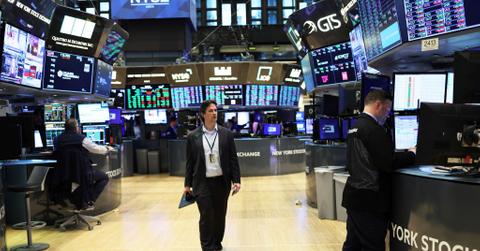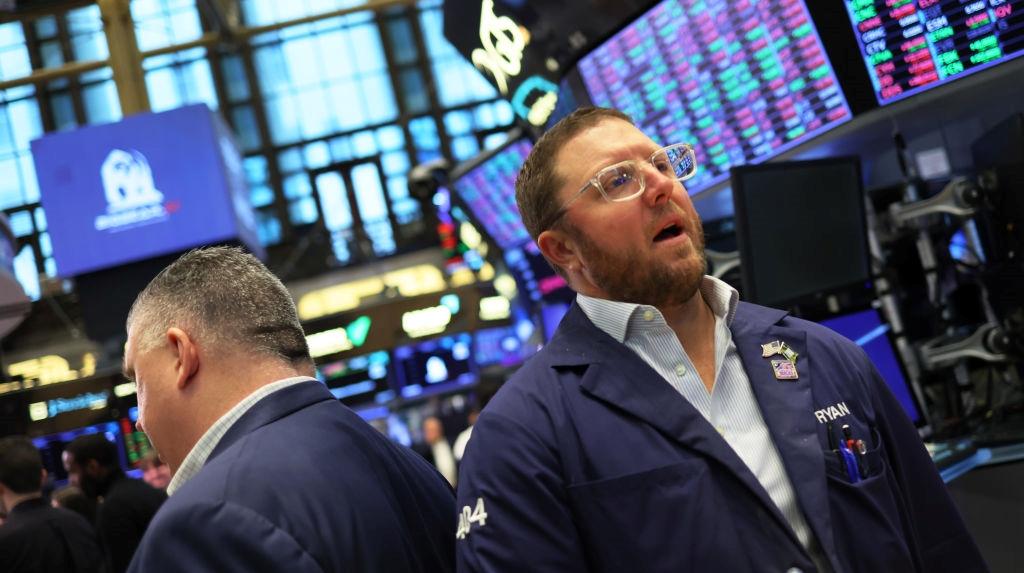The Stock Market Suffers During a Recession, Will Bounce Back
The stock market tends to suffer during a recession. The good thing? Nothing in the market is permanent. Here's what investors can expect.
April 12 2022, Published 11:46 a.m. ET
More experts are chiming in that a potential recession is looming, including former U.S. Treasury Secretary Larry Summers. If that comes to fruition, investors will surely get hit. The stock market is just one factor amid larger economic turbulence that a recession causes.
Here’s how the stock market suffers during a recession, and how long it usually takes to bounce back.
Recessions impact the stock market — here's how.
Recessions usually occur after economic peak times when unemployment rates are low, dividend payments are high, and interest is rising. The stock market is a big part of recessions because stocks and securities represent the larger economic wellbeing.
The U.S. stock market has faced and overcome past recessions.
In 2001, when the dot-com bubble burst and the 9/11 tragedy occurred, the U.S. economy experienced a recession that lasted about eight months. In this case, the stock market sank twice. Stocks didn’t finally start climbing until a year after the recession in 2002 after losing 38 percent across the broad market.
In 2008, during the Great Recession, stocks lost 53.78 percent of value from the pre-recession peak stage to the post-recession trough. The volatility index (VIX) was at record highs and Treasury yields fell to record lows.
Previous recessions show similar patterns. The 1990 recession was about as long as the recession in 2001. The stock market lost about 26 percent of its value from peak to trough. Even the dual recessions that occurred in the early 1980s saw stocks fall 8 percent–23 percent.
Stock markets will inevitably experience volatility, most likely in the bearish direction, during and shortly after recessions.
Wild volatility means a longer recovery.
Recessions cause the stock market to plummet fast. However, wild upward swings often occur. The reality is that emotional sentiment during a recession makes trading behavior much more volatile, unpredictable, and rooted in asset safety.
It seems to take longer for the stock market to recover during a recession than it does to plummet. After the Great Recession, the S&P 500 took two years to recover from losing about half of its value.
Bank of America chief investment strategist Michael Hartnett wrote in a letter, “‘Inflation shock' worsening, 'rates shock' just beginning, 'recession shock' coming.” Hartnett kept it concise, but the concern rings clear—both for the stock market and the economy at large.
What should you do if a recession is coming?
Panic selling isn't an ideal solution during a recession. Long-term investments with 5–10+ years to recover (such as retirement accounts) will be more likely to weather the storm. In this case, it’s more lucrative to remain invested. However, the money you would like to access in the short term should be kept in something liquid, like a money market account or high-yield savings account. While interest rates usually decrease during a recession, it’s safer than a market that’s bound to bottom out.
To be clear, a recession is just a rumor at this point in the second quarter of 2022, and some stocks are more likely to weather the storm than others. Adjust (or don’t adjust) your personal investing strategy accordingly.


